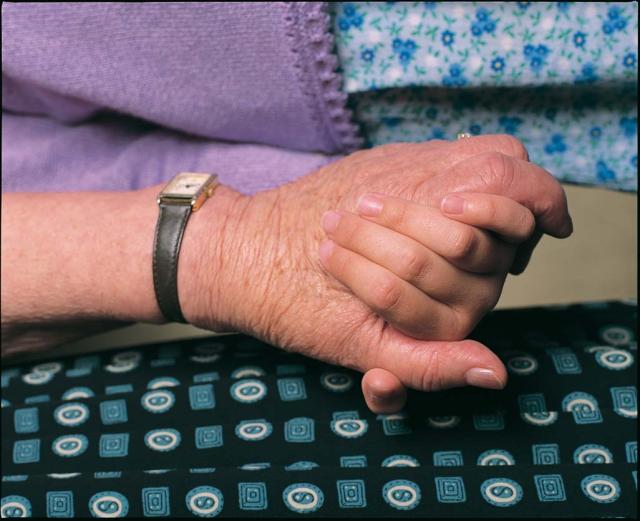- A
- A
- A
Dying Matters Awareness Week

18 May 2015
There’s a special toast that Jewish people make at happy occasions – ‘l’chaim’, or ‘to life’. We like to talk about what makes a good life – the love of friends and family, spiritual fulfilment, satisfying work, personal achievements. But, understandably, we’re less comfortable talking about what makes a good death. So now that it’s Dying Matters Awareness Week (18-25 May) – let’s talk.
As a trustee of the National Council for Palliative Care (who run Dying Matters Awareness Week and the Dying Matters Coalition), this is a very important issue for me. MHA understands that dying is an inevitable and natural consequence of living. But we also understand why we often pretend it doesn’t happen. The Dying Matters coalition encourages people to talk about death and dying and help prepare and plan for it. We do the same, with our end of life care training for staff, and our spiritual support for everyone who is affected when someone is dying.
It’s difficult to know what to say or do when someone is nearing their death. Our Final Lap end of life care training prepares staff to understand the needs of both dying people and their loved ones, providing the support and care they need to die peacefully and with dignity. Everyone has spiritual needs, which may or may not be faith-based. Our Chaplaincy service, whereby all residential settings have a dedicated Chaplain, can also be a great comfort when a death is near or recent. Whether faith-based pastoral care, or confidential one-to-ones, Chaplains provide spiritual support for the dying person, their loved ones, and the staff who care for them.
Death will come to all of us eventually, and of course we can’t always prepare for it. But by using the opportunities when we can, we can make it as painless and dignified as possible.
Rev Dr Keith Albans
Director – Chaplaincy and Spirituality
